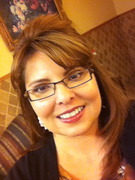Menopause
Once a woman reaches the age of 50, about the age of natural menopause, her risk for heart disease increases dramatically. Menopause brings changes in the level of fats in a woman’s blood. These fats, called lipids, are used as a source of fuel for all cells. The amount of lipids per unit of blood determines a person’s cholesterol count. There are two components of cholesterol: high density lipoprotein (HDL) cholesterol, which is associated with a beneficial, cleansing effect in the bloodstream, and low density lipoprotein (LDL) cholesterol, which encourages fat to accumulate on the walls of arteries and eventually clog them. To remember the difference, think of the H in HDL as the health cholesterol, and the L in LDL as lethal. LDL cholesterol appears to increase while HDL decreases in postmenopausal women as a direct result of estrogen deficiency. Elevated LDL and total cholesterol can lead to stroke, heart attack, and death.
How Can Menopausal Women Reduce Their Risk of Heart Disease?
A healthy lifestyle goes a long way in preventing heart disease:
•Avoid or quit smoking. Smokers have a 70 percent increased risk of heart attack and a higher number of strokes than nonsmokers. The risk of having a heart attack or stroke is directly related to the number of cigarettes a person smokes each day—the more cigarettes smoked, the greater the risk. Continuing to smoke after a heart attack increases the chance of having a second attack.
•Maintain a healthy body weight. Extra weight puts strain on your heart and arteries. Exercise and a low-fat diet can help you lose weight. Being overweight means you have a higher risk for many other health problems, especially diabetes, high blood pressure and heart disease.
•Exercise for 30-40 minutes at least three to five times per week.
The heart is like any other muscle in that it needs to be worked to keep it strong and healthy. People who exercise are healthier and have more energy. Walking, jogging, swimming, and bicycling are great exercises for burning calories, controlling weight, and improving the function of the heart and lungs.
•Eat well.
•Dietary Guidelines. The dietary guidelines of the Arizona Heart Institute follow the concept of the Food Guide Pyramid developed by the United States Department of Agriculture and the Department of Health and Human Services, which was updated in 2005 to reflect changing lifestyles and nutritional requirements.
The Dietary Guidelines describe a healthy diet as one that:
•Emphasizes fruits, vegetables, whole grains, and fat-free or low-fat milk and milk products.
•Includes lean meats, poultry, fish, beans, eggs, and nuts; and is low in saturated fats, trans fats, cholesterol, salt, and added sugars.
•Treat and control medical conditions. Diabetes, high cholesterol, and high blood pressure are known risk factors for heart disease.
The Future
When women and their doctors are alert to the signs and symptoms of heart disease, potential victims can be identified earlier in the disease process. The sooner that treatment is begun, the more effective it is.
Understanding more about heart disease as it occurs in women will also help people be more conscientious about adopting habits that can help prevent or delay it from developing.
To learn more about heart disease and menopause or to contact a physician at the Arizona Heart Institute visit http://www.azheart.com/ or call (602)266-2200.

